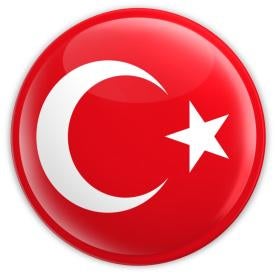Familial Mediterranean fever (FMF) is an inherited condition resulting from mutations in the FMF gene and is characterized by recurring episodes of painful inflammation in the abdomen, chest and/or joints. These episodes are often accompanied by fever and sometimes a rash or headache. The FMF gene provides instructions for making a protein called pyrin (also known as marenostrin), which is found in white blood cells.
A Turkish patent issued on October 22, 2007, claiming an isolated gene sequence encoding FMF, nucleic acid probes specific for the normal or mutated FMF gene and a method of detecting the presence or absence of mutations related to FMF an isolated gene.
An invalidity action was instituted against the patent in the Istanbul 1st Court of Intellectual Property (Court). Specifically, the third party filer requested invalidity of all of the issued claims. The Court appointed a panel of three experts (a first panel of experts) to assist in evaluating the patentability of the claims. In invalidity proceedings in Turkey, a panel of experts is hired to assist in evaluating the technical aspects of a patent and to conduct an assessment on novelty and inventive step in light of the documents submitted by the party requesting invalidity. Interestingly, in this proceeding, because the Court was not satisfied with the first panel, a second panel was hired to replace the first panel.
Ultimately, the Court held the Turkish Patent partially invalid. Specifically, the Court held that claims directed to an isolated gene sequence were invalid and claims covering the probe specific for the normal or mutated FMF gene and the primers for amplification were valid. The decision can be appealed to the Supreme Court of Turkey by one or both of the parties. The Supreme Court may maintain or reverse the decision of the Court. If reversed, the Court can issue a new decision or insist that the original decision be maintained. If the Court insists on maintaining the original decision, the case will be referred to the General Council of the Supreme Court which will issue a final decision.
Issues Discussed by the Court
The two main points addressed by the Court were (1) the patentability of isolated genes; and the (2) patentability of a method and probe for detecting nucleic acids under Turkish Patent Law.
Patentability of an isolated gene based under Turkish Patent Law
Interestingly, in this case, the Court and the panel of experts held conflicting views on the patentability of genes. Specifically, the Court held that an isolated gene was not patentable because it existed in nature and, as such, should be classified as a discovery. The Court referred to Decree Law No. 551, Article 6 (reproduced below), in support of its decision that discoveries are not patentable. Additionally, because Turkey is a member of the World Trade Organization (WTO), the Court further held that under TRIPS, Article 27 (reproduced below) certain subject matter could be excluded from being “patentable” in Turkey.
Decree Law No. 551 on the Protection of Patent Rights, Article 6
Non-Patentable Subject Matter and Inventions
-
The following, not being inventions by nature, shall remain outside the scope of this Decree-Law:
(a) discoveries, scientific theories, mathematical methods;
(b) plans, methods and rules for performing mental acts, conducting business activities and playing games;
(c) literary and artistic works, scientific works, creations having aesthetic characteristics, computer programs;
(d) methods of collecting, arranging, presenting and transmitting information that have no technical features;
(e) methods of diagnosis, therapy and surgery applicable to the human or animal body.
The provisions in subparagraph (e) of the first paragraph of this Article shall not apply either to the actual products and compositions used in connection with the said methods or to the manufacturing process thereof. Patents shall not be granted for inventions relating to the following:
(a) subject matter contrary to public policy or generally accepted standards of morality;(b) plant and animal varieties or processes for breeding plant or animal varieties that are based mainly on biological factors.The Agreement on Trade-Related Aspects of Intellectual Property Rights (TRIPS), Article 27
Patentable Subject Matter
-
Subject to the provisions of paragraphs 2 and 3, patents shall be available for any inventions, whether products or processes, in all fields of technology, provided that they are new, involve an inventive step and are capable of industrial application. Subject to paragraph 4 of Article 65, paragraph 8 of Article 70 and paragraph 3 of this Article, patents shall be available and patent rights enjoyable without discrimination as to the place of invention, the field of technology and whether products are imported or locally produced.
-
Members may exclude from patentability inventions, the prevention within their territory of the commercial exploitation of which is necessary to protect ordre public or morality, including to protect human, animal or plant life or health or to avoid serious prejudice to the environment, provided that such exclusion is not made merely because the exploitation is prohibited by their law.
-
Members may also exclude from patentability:
(a) diagnostic, therapeutic and surgical methods for the treatment of humans or animals;(b) plants and animals other than micro-organisms, and essentially biological processes for the production of plants or animals other than non-biological and microbiological processes. However, Members shall provide for the protection of plant varieties either by patents or by an effective sui generis system or by any combination thereof. The provisions of this subparagraph shall be reviewed four years after the date of entry into force of the WTO Agreement.
The first panel concluded that the invention was merely a discovery and, as a result, not patentable. In their written opinion to the Court, the second panel disagreed and concluded that biotechnological inventions were patentable. Specifically, the second panel stated that there was nothing in Decree Law No. 551 on the Protection of Patent Rights, Article 6 (see above), regarding the patentability of methods of treatment, second medical use and biotechnological inventions. Moreover, the panel noted that Turkey was a member of the Budapest Treaty for Patents in Microbiological Inventions. Additionally, the panel referred to Decree Law No. 551, Article 46 (reproduced below) to demonstrate that microorganisms and microbiological processes were recognized under Turkish law as patentable inventions. For these reasons, the panel argued that Turkish Patent Law allowed patent protection for elements existing in nature.
Decree Law No. 551 on the Protection of Patent Rights, Article 6 (Reproduced below)
Explicitness of the Description
-
The description shall be written in sufficiently explicit and comprehensive terms for a person skilled in the technical field concerned to carry out the invention.
Where the invention relates to a microbiological process and the related microorganism is not accessible to interested parties, the description shall be deemed to meet the requirements specified in the first paragraph of this Article if the following conditions are fulfilled:
(a) the description contains information regarding the characteristics of the microorganism;
(b) the applicant has deposited, no later than on the filing date of the application, a culture of the microorganism with an authorized institution established in accordance with international conventions.
The said institution shall be mentioned in the publication provided for in the second paragraph of Article 55.
The panel cited Directive 98/44/EC (Directive 98/44/EC of the European Parliament and of the Council of 6 July 1998 on the Legal Protection of biotechnological inventions, reproduced below) and argued that genes isolated using novel and technical processes were patentable (Note: Turkey is not a member of the European Union (It is a candidate country). As a result, this directive is not applicable in Turkey.). Additionally, in the panel’s opinion, a gene isolated from its natural environment for the first time and having a technical effect might be patentable, even if identical to a gene existing in nature. Therefore, according to the panel, biotechnological inventions are patentable.
Directive 98/44/EC of the European Parliament and of the Council of 6 July 1998 on the Legal Protection of biotechnological inventions, Article 5
Article 5
-
The human body, at the various stages of its formation and development, and the simple discovery of one of its elements, including the sequence or partial sequence of a gene, cannot constitute patentable inventions.
-
An element isolated from the human body or otherwise produced by means of a technical process, including the sequence or partial sequence of a gene, may constitute a patentable invention, even if the structure of that element is identical to that of a natural element.
-
The industrial application of a sequence or a partial sequence of a gene must be disclosed in the patent application.
The Court invited the second panel to be heard in the hearing. During the hearing, two of the experts changed their written opinion and stated that gene sequences should be accepted as a discovery. As a result, despite the favorable written opinion of the panel, the Court held that a gene sequence is not patentable.
Patentability of a method and probe for detecting nucleic acids
The Court held that probes and methods for detecting nucleic acids were patentable. Specifically, the Court‘s reasoning was as follows. A probe can only be produced when a mutated gene sequence is known. It is not possible to identify or detect a mutated gene with any probe production processes without knowing the gene sequence. Therefore, the novelty of a probe does not depend on its technique of production but on the sequence of the mutated gene. Since a mutated gene sequence is unique, the probe is patentable, even though probes are simply the chemical copy of the mutated gene and a molecule. As a result, the Court held that the claimed probe and method for detecting nucleic acids claimed in the patent were novel and met the requirement of inventive step.
Conclusion
As mentioned previously, the Court held the Turkish Patent invalid. This decision can be appealed to the Supreme Court.
A new draft Turkish IP Code has been published and is expected to be enacted in the very near future. According to the draft, gene sequences are not patentable if the discovery of such sequences is simply the result of a “simply discovery”. In other words, new gene sequences that are not isolated through novel and inventive methods will not be patentable in Turkey.
Please continue to check for updates on this important case and the expected changes in the Turkish IP Code.
Okan Can and Muazzez Koruturk are co-authors of this article.




 i
i

